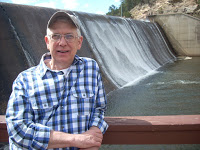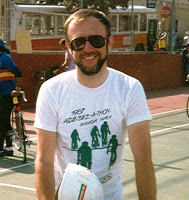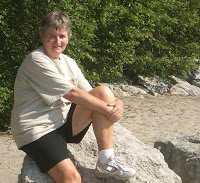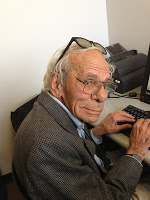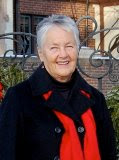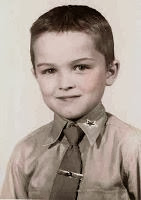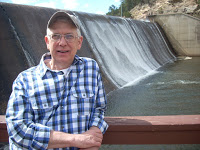“Alas,” poor Myrna may have said after twenty-nine years of marriage with me. “Alas, my husband is a gay man.”
Surely she said something like that at some point. Before we separated she lived for over two years knowing of my infidelity. Of course that infidelity had been going on many years more. Her first hint of it must have occurred when I was thirty years old and only flirting. The unmistakable certainty came many years later. I know this because around the time we separated she told our daughter, “Your dad is gay, and I’ve known it for twenty years.” I don’t know just what she knew about homosexuality when we were 30 years old, but I assume that she realized that I had experienced a change in feelings and showed a new kind of interest in someone else. Perhaps she assumed I had lost my love for her or I wanted out of our marriage; she feared separation and divorce. My continuing interest in our own sexual relationship during those following twenty years may have led her revise her cry to, “Alas, I have married a bisexual.” When we talked, she said of homosexuality that she had no problem with it. She added, “But it’s not supposed to be your husband!” (I‘m sure the explanation point I’ve used was there in her voice.) Alas.
My own “Alas, poor…” relates to the same matter but from an institutional perspective. I say, “Alas, poor churches…” given the unreality of a common American, rather liberal church stand on issues gay. These churches seem to be saying, “It’s not supposed to be your Sunday school teacher, spouse, scout master, board chairperson, or minister.” Even more curious than that, a number of churches seem to be wringing their hands over their positions on homosexuality by retreating into an assertion of sin as action, relegating homosexuality to be somehow a problem of original sin or something similar if you don’t believe in original sin? You may be homosexual, which in itself they say is not a sin, but you cannot do it, meaning have sex with a person of the same sex. I first read the idea in a United Presbyterian Church statement back in 1978. Since then the statement has appeared in United Methodist papers, sometimes used by Disciples of Christ and others, then surprisingly to me lately adopted by the rather conservative Roman Catholic Church, and even more surprising to me recently touted by the Church of Jesus Christ of the Latter Day Saints. Alas, just what are they thinking? It’s difficult for me to fathom, but perhaps it’s a complaint on their parts. Something like, “Alas, those pesky homosexuals are everywhere.” I haven’t even spent time imagining their comments related to bisexual and transgendered persons. Still I say, “Alas, those poor theologians, scholars, clergy, and committees assigned the task of writing something that can be accepted across the storm waters of their denominations’ theological diversities.” Even the rather theologically liberal National Council of Churches couldn’t figure out how to be nice to the queer Metropolitan Community Church denomination when it requested membership.
Alas, will it ever get better? Can councils respond only to majority votes? You know, It’s not supposed to be your husband; not you wife, certainly not your minister.
I say “Alas, those poor folk who cling so closely to traditions that stifle the change that’s going to happen anyway.” And, of course, that includes me. I am in no way perfect. My challenge has been to provide as much continuity as possible in all the change and do so in ways that embrace both the change and the best potentials from the past. Alas, woe is me in trying to explain such a convoluted philosophy. But let’s just decide to play together anyway and keep seeking joy in one another.
© 2014
Denver, 2015
Phillip Hoyle lives in Denver and spends his time writing, painting, and socializing. In general he keeps busy with groups of writers and artists. Following thirty-two years in church work and fifteen in a therapeutic massage practice, he now focuses on creating beauty. He volunteers at The Center leading the SAGE program “Telling Your Story.”
He also blogs at artandmorebyphilhoyle.blogspot.com
